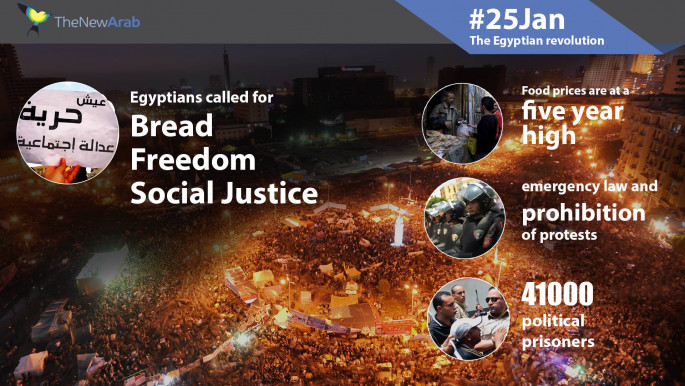'Frightening nightmare': Egyptian death-row journalist breaks her silence
Asmaa Mohamed al-Khatib is an Egyptian journalist with the pro-Muslim Brotherhood Rassd news outlet, has been sentenced to death in absentia by a Cairo court.
She was given the ruling along with five other journalists, three of whom – including Khatib – were alleged to have spied for Qatar and relayed "secret material" to Doha.
Khatib was in Turkey when the death sentence was passed.
She only discovered she was of those courts recommended to be executed after she heard former Interior Minister Mohammed Ibrahim speaking on television about a supposed spy cell working for Qatar.
"I was completely shocked," she told The New Arab.
Fear and black humour
Khatib's first reaction was a mixture of confusion and sarcasm, as she considered the verdict "worthless".
It will only deprive her of Cairo's street food, which she used to enjoy during her work as a journalist, she said.
"I do not acknowledge the legitimacy of this regime or its judiciary, and I know it will fall sooner or later," she said. "But I cannot deny my shock at the verdict.
 |
Journalism has become a crime in Egypt, faced with all kinds of terror |  |
The Egyptian court recommended death sentences for six people accused of espionage alongside ousted President Mohamed Morsi.
Two from the group – named as Ibrahim Mohamed Hilal and Alaa Omar Mohamed Sablan – have been identified as Al Jazeera staffers. They were tried in absentia.
"I did not expect the judiciary's blatant injustice against journalists and opponents would go that far."
She believes the case was not based on any legal or logical grounds, and she has no idea why her name has emerged in the Qatar espionage case.
"Journalism has become a crime in Egypt, faced with all kinds of terror," she said. She describes herself as living in a "frightening nightmare".
The 25-year-old currently lives in Turkey with her husband and six-month-old son.
"I do not think of returning to Egypt," she said. "I want to raise my son in peace without fears of prison or murder or intimidation by a tyrant regime."
 |
Escalating crackdown
The verdict came amid escalating tensions between journalists and a regime which has grown intolerant of all criticism.
Hundreds of journalists have joined protests and sit-ins at the Press Syndicate to demand the release of imprisoned colleagues and even calling for the sacking of the interior minister.
Last week, the syndicate denounced what it called a decline in press freedoms and accused the regime of being "at war" with the profession after two reporters were arrested.
Human rights activists accuse President Abdel Fattah al-Sisi of running an ultra-authoritarian regime that has violently suppressed all opposition since toppling Morsi in 2013.
Journalists have also been targeted in the crackdown.
While dozens of writers and reporters have been detained, three Al Jazeera English journalists – Peter Greste, Baher Mohamed and Mohamed Fahmy – were held in prison for more than a year, accused of supporting the Muslim Brotherhood.
Mohamed and Fahmy were eventually pardoned, and Greste deported, but the fear among journalists of reporting critically about the regime continues.





 Follow the Middle East's top stories in English at The New Arab on Google News
Follow the Middle East's top stories in English at The New Arab on Google News


